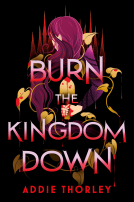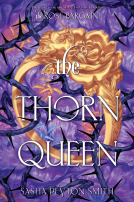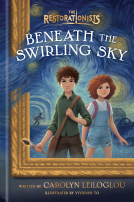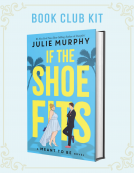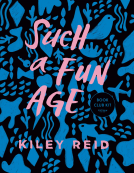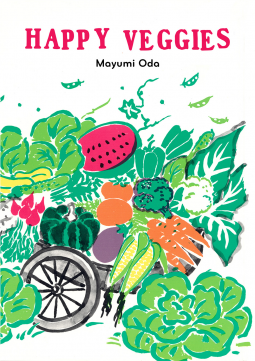
Happy Veggies
by Mayumi Oda
This title was previously available on NetGalley and is now archived.
Send NetGalley books directly to your Kindle or Kindle app
1
To read on a Kindle or Kindle app, please add kindle@netgalley.com as an approved email address to receive files in your Amazon account. Click here for step-by-step instructions.
2
Also find your Kindle email address within your Amazon account, and enter it here.
Pub Date Nov 27 2018 | Archive Date Nov 27 2018
Parallax Press | Plum Blossom
Talking about this book? Use #HappyVeggies #NetGalley. More hashtag tips!
Description
Crisp cabbages, crunchy carrots, radiant radishes.... Vibrant illustrations of vegetables in the garden by legendary Japanese artist Mayumi Oda will inspire children to see the garden as a life-giving place where they can touch the Earth and see how Nature loves and feeds them. Starting with green and purple asparagus in the Spring, the book moves joyfully through the seasons, showing how hot and cold weather, sunshine and rain all combine to bring about a happy harvest.
Available Editions
| EDITION | Other Format |
| ISBN | 9781946764065 |
| PRICE | $12.95 (USD) |
| PAGES | 40 |
Average rating from 33 members
Featured Reviews
In 2005, Richard Louv coined the phrase Nature Deficit Disorder. Although not a recognized medical disorder, it’s easy to see that many of us spend a significant amount of time indoors and are alienated from nature. Some studies indicate that being disconnected from nature is associated with anxiety, depression, and obesity while direct experience of nature promotes creativity, problem solving, focus, and physical health.
Long before 2005, I joined the ranks of those alienated from nature. It’s not that I don’t like the outdoors; I find it beautiful. I just don’t always want to be outside in the outdoors. Along with this comes a disconnect with the source of our food. Recently, I took a completely unscientific quiz assessing how much I knew about the way food grew. Was it from a tree, a bush, or the ground? Needless to say, I did not perform well.
Happy Veggies promotes a connection with the outdoors and shows how popular vegetables like corn, carrots, beans and tomatoes grow. The text introduces the food through the seasons: asparagus and onions in spring; eggplants and beans in the summer; corn and pumpkins in fall; and root vegetables in the winter. We see also creatures who live in the garden such as bees, butterflies, worms, and moles. As winter ends, the cycle renews.
Mayumi Oda’s illustrations are lovely. To me, they draw from the rich tradition of Japanese art. The vegetables are primarily shown in close up, both what they look like above and below the ground, and sometimes below the ground is as or more colorful as what’s seen above. Even though I’m not a fan of onions, the illustration of purple and yellow onions is so stunning, I would put a poster of it on my wall.
I liked the text less than the illustrations. Some of the pages rhymed, some did not. At times, the story talked to the reader: “Do you want to meet Mother Nature?” and “Potatoes are a garden’s heart. Can you hear them?” But other times, the text was directed to the vegetables themselves as when it exhorted beans to “Grow, grow!” Consequently, the book did cohere as well as it could have.
The style is rather dreamy and talks of angels visiting the garden and corn popping from the stalk (which I don’t think can happen normally!). I wondered if the style and these images would not bring children closer to Mother Nature but make her seem unreal.
That said, Happy Veggies is a valiant effort to teach children how their food grows and promote a connection to the natural world. It’s especially worth perusing for the stunning artwork.
 Beth G, Educator
Beth G, Educator
This book is a great way of teaching children where their veggies come from. So many children see veggies in the store or farmer's market and do not know how they grow. I personally find the brussels sprouts to be the most interesting. The illustrations were simple but effective. It was nice it included herbs as well as the vegetables. This book could be used both in the classroom and at home.
 SARAH M, Book Trade Professional
SARAH M, Book Trade Professional
This book is simple and sweet. The illustrations and to the reading experience. I like the vocabulary included in the book and the positive tone.
 catherine h, Reviewer
catherine h, Reviewer
The gardener in me loves this story! I can't wait to introduce it to children who visit my home! This would be a good prelude to vegetable picking with them. I love the rhyme and all the descriptions of the veggies and their tie to Mother Earth. As a pagan, that appeals to me! The illustrations are so beautiful in their simplicity! Very nice story for little kids.
Readers who liked this book also liked:
We Are Bookish
Multicultural Interest, Mystery & Thrillers, Teens & YA
We Are Bookish
Arts & Photography, Health, Mind & Body, OwnVoices
We Are Bookish
General Fiction (Adult), Romance, Women's Fiction
Rachel Joyce
Historical Fiction, Literary Fiction, Women's Fiction
We Are Bookish
Mystery & Thrillers, OwnVoices, Teens & YA
We Are Bookish
Historical Fiction, Mystery & Thrillers, Teens & YA
We Are Bookish
Business, Leadership, Finance, Nonfiction (Adult), Self-Help

